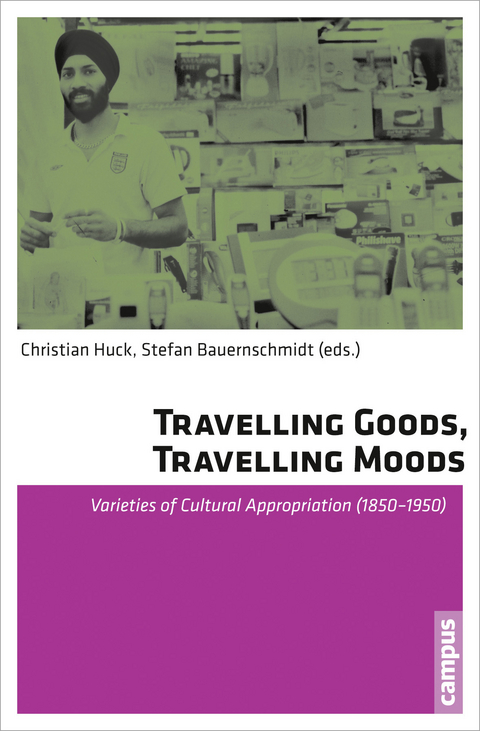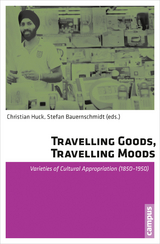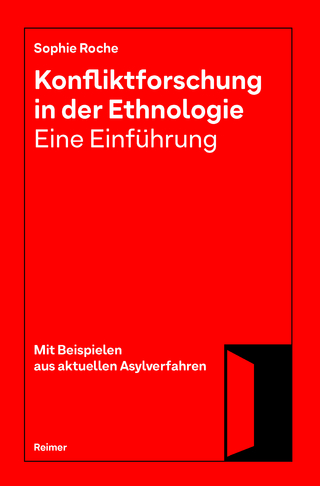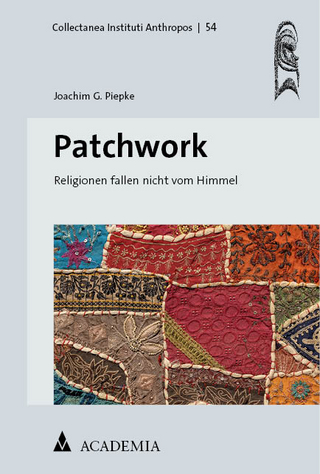Travelling Goods, Travelling Moods
In the past years, Cultural Studies has begun to analyze the global world of economy, supplementing existing studies of economists. This edition highlights the concept of 'trans-cultural appropriation' as a tool for understanding cultural dimensions of modern consumption, especially when it comes to transnational economic processes. Presenting a rich variety of empirical studies, ranging from the introduction of Chinese food in the USA to Ford cars in Germany and American schoolbooks in the Philippines, the collection brings processes of cultural exchange to the fore that the post-war paradigm of 'Americanization' neglects.
Dass Waren erst durch ihr kulturelles Umfeld Wert und Bedeutung erhalten, und beides umkämpft ist und immer wieder hergestellt werden muss, verdeutlichen die Autorinnen und Autoren in diesem Band. Mit dem Konzept der »kulturellen Aneignung« bieten sie eine theoretisch reflektierte wie auch empirisch angereicherte Begrifflichkeit für kulturwissenschaftliche Studien globaler Warenzirkulation.In the past years, Cultural Studies has begun to analyze the global world of economy, supplementing existing studies of economists. This edition highlights the concept of 'trans-cultural appropriation' as a tool for understanding cultural dimensions of modern consumption, especially when it comes to transnational economic processes. Presenting a rich variety of empirical studies, ranging from the introduction of Chinese food in the USA to Ford cars in Germany and American schoolbooks in the Philippines, the collection brings processes of cultural exchange to the fore that the post-war paradigm of 'Americanization' neglects.
Christian Huck ist Professor für Englische und Amerikanische Kultur- und Medienwissenschaft an der Universität Kiel. Stefan Bauernschmidt, Dr. phil., ist dort wissenschaftlicher Mitarbeiter.
Contents
Preface.......................................................................................................9
Theory
Cultural Appropriation. Power, Transformation, and Tradition
Hans Peter Hahn.......................................................................................15
Appropriating Food
Introduction
Doris Feldmann..........................................................................................39
Cook at Home in Chinese.
Mediating Chinese Food for American Kitchens
Sonja Weishaupt........................................................................................45
How the Germans did not Appropriate Fish and Chips.
The Case of the Fischbratküche in the 1920s and 1930s
Ole Sparenberg........................................................................................61
German Sausage for the British Cuisine.
Migration and Cultural Appropriation
Margrit Schulte Beerbühl...........................................................................79
Appropriating Books
Introduction
Susanne Scholz..........................................................................................99
American Dime Novels on the German Market.
The Role of Gatekeepers
Christian Huck........................................................................................105
Appropriating America? American Schoolbooks
in Philippine Classrooms, 1900-1912
Olivia Anne M. Habana...........................................................................125
Network of Texts. H. C. Andersen
and the Transnationalization of Literature
Frederike Felcht........................................................................................143
Appropriating Machines
Introduction
Carsten Schinko.......................................................................................163
Ford in Interwar Berlin. Perception and Appropriation
Stefan Bauernschmidt...............................................................................169
The Dual Nature of Technology.
Automotive Ignition Systems and the Evolution of the Car
Gijs Mom............................................................................................189
Ghost in the Machine.
Mechanization in a Philippine Frontier, 1898-1941
Patricia Irene Dacudao............................................................................209
Theory Revisited
Trans-Cultural Appropriation
Christian Huck and Stefan Bauernschmidt...............................................229
Authors..................................................................................................253
Index......................................................................................................257
We wake up in Swedish beds and Bangladeshi pajamas, shave using American razors and put on French perfume; we eat Danish pastry for breakfast, drink coffee from Ethiopia or sip tee from India; we put on Italian clothes and drive to work in Japanese cars; we communicate using Finnish cell phones, work on American computers and eat lunch at a Mexican restaurant; when we come home we have Thai take-away and an Australian Chardonnay for dinner before we read a Norwegian crime novel, listen to British pop music and return to our Swedish beds. Does this sound familiar to you? One of the most immediate and directly felt effects of globalization-at least in the West-can be experienced in our daily encounters with consumer goods. Supermarkets, warehouses and online shops offer consumer goods from all over the globe: one click, and products once thought of as foreign, exotic and almost impossible to obtain are now delivered straight to our doorstep. Today, goods seem to travel light, and it appears to be easy to make the foreign our own.
However, not all of these 'travelling goods' travel the same way, and not all are foreign in the same way. Ikea's Swedish designed beds are mostly produced in China; Honda's Japanese cars are manufactured in plants all around the world, and some ingredients of French Chanel No. 5 are fabricated in Bitterfeld, once the capital of the chemical industry in East Germany. Whereas tee and coffee are indeed grown in their respective countries of origin, our Danish pastry has been made at our local bakery, though according to a recipe created in Vienna, Austria. While the Italian origin of our suit and the Britishness of our music might be of specific importance to our personal identity, the fact that our smart phone is a Finnish product seems less relevant. At the same time, while we all know that our computers and shelves most likely have been produced in China, their American or Swedish provenance matters to us nonetheless.
Why does it matter where things come from-even when they do not actually come from there? Goods partake in specific networks: they are conceived by certain people in certain places, they are produced from specific materials using specific techniques and machineries, they are used by certain people in certain ways and they are named and described in relation to similar, familiar things. In short, they are embedded within a specific culture, part of a specific, albeit contingent, fabric of meaning, practice and materiality. Apparently, things are nothing without a context, and by their association with context they are attuned to a certain mood, a certain disposition. When we encounter goods we cannot but react to these moods.
The questions that this volume asks seem simple: what happens to the mood of a good once it travels from one culture to another? What happens to the original mood of a good within a new culture? Is it maintained, dismissed or transformed? Does this process change the good? Does it affect the cultures involved? The process that decides what place a thing shall have within a culture, and at the same time decides on the mood of a good, is what we term (trans-)cultural appropriation. What happens when a culture makes an alien good its own?
To answer these questions we examine an historical period (1850-1950) when processes of globalization and the consequent presence of foreign goods on local markets were not as widespread as today, but when this presence was all the more heavily and controversially discussed. The goods we concentrate on in this edited volume fall into three categories: food, books and machines. These represent anthropological necessities (food), key cultural products (books) and technologies central to modern civilizations (machines). Each section comprises three essays preceded by a short introduction outlining the general characteristics of the good in question and the particular perspective of each individual contribution. The volume o
| Erscheint lt. Verlag | 10.9.2012 |
|---|---|
| Co-Autor | Stefan Bauernschmidt, Frederike Felcht, Doris Feldmann, Patricia Irene Dacudao, Olivia Anne M. Habana, Hans Peter Hahn, Christian Huck, Gijs Mom, Carsten Schinko, Susanne Scholz, Margrit Schulte Beerbuehl, Ole Sparenberg, Sonja Weishaupt |
| Zusatzinfo | 24 Abbildungen |
| Verlagsort | Frankfurt |
| Sprache | englisch |
| Maße | 141 x 214 mm |
| Gewicht | 336 g |
| Themenwelt | Sozialwissenschaften ► Ethnologie ► Allgemeines / Lexika |
| Schlagworte | globale Konsumprozesse • Kultursoziologie • Transkulturelle ÖkonomieKulturelle Aneignung • Waren • Warenzirkulation |
| ISBN-10 | 3-593-39762-5 / 3593397625 |
| ISBN-13 | 978-3-593-39762-7 / 9783593397627 |
| Zustand | Neuware |
| Haben Sie eine Frage zum Produkt? |
aus dem Bereich




